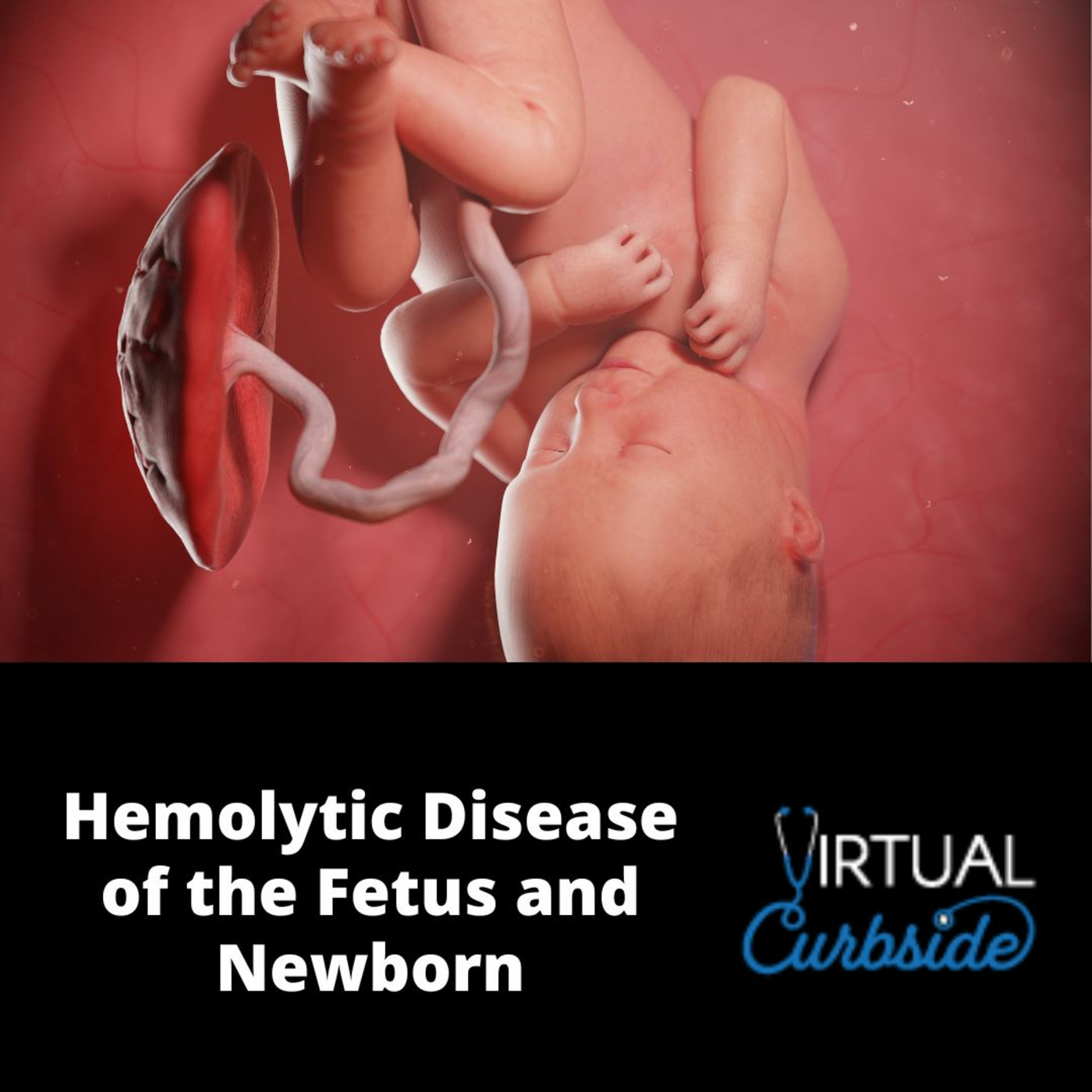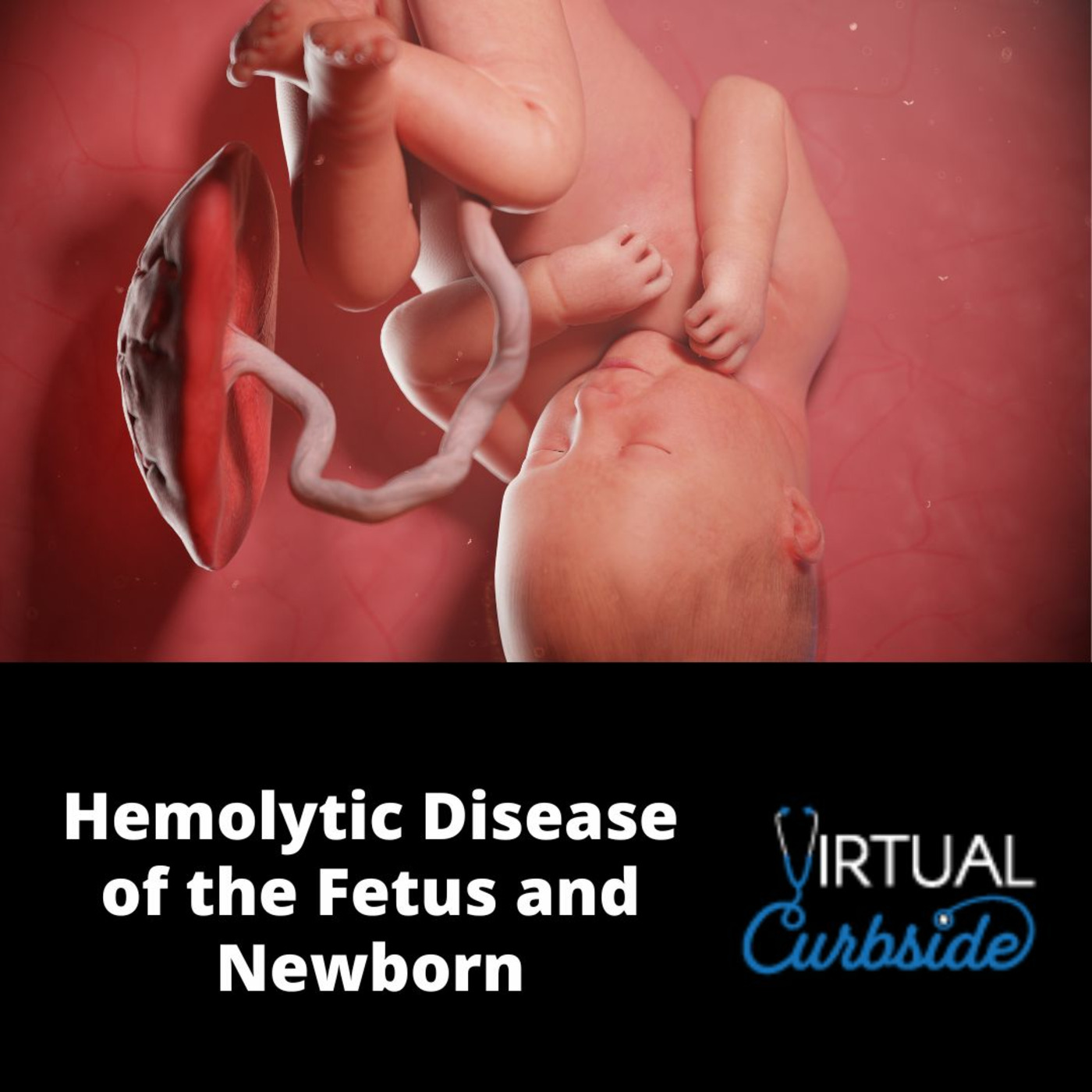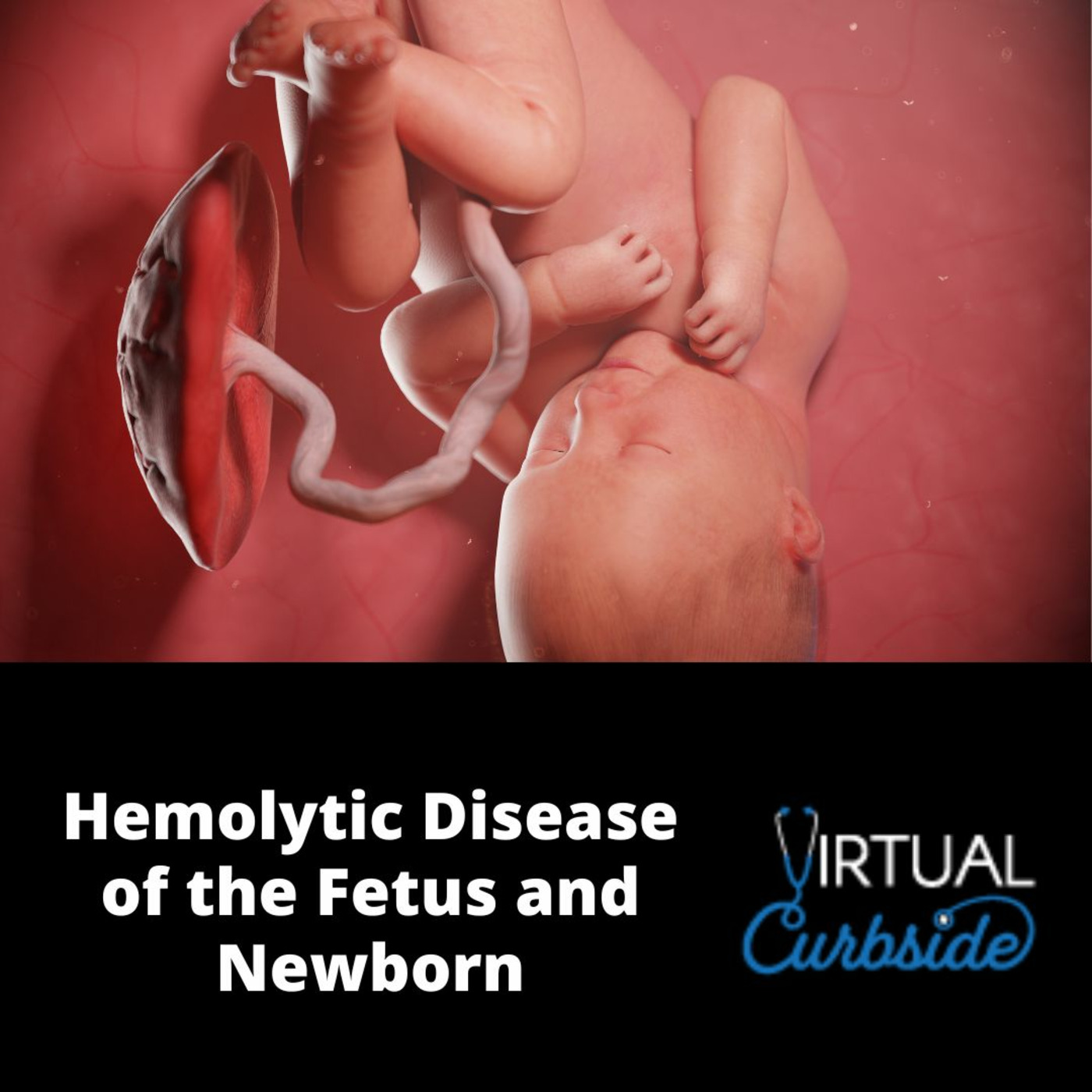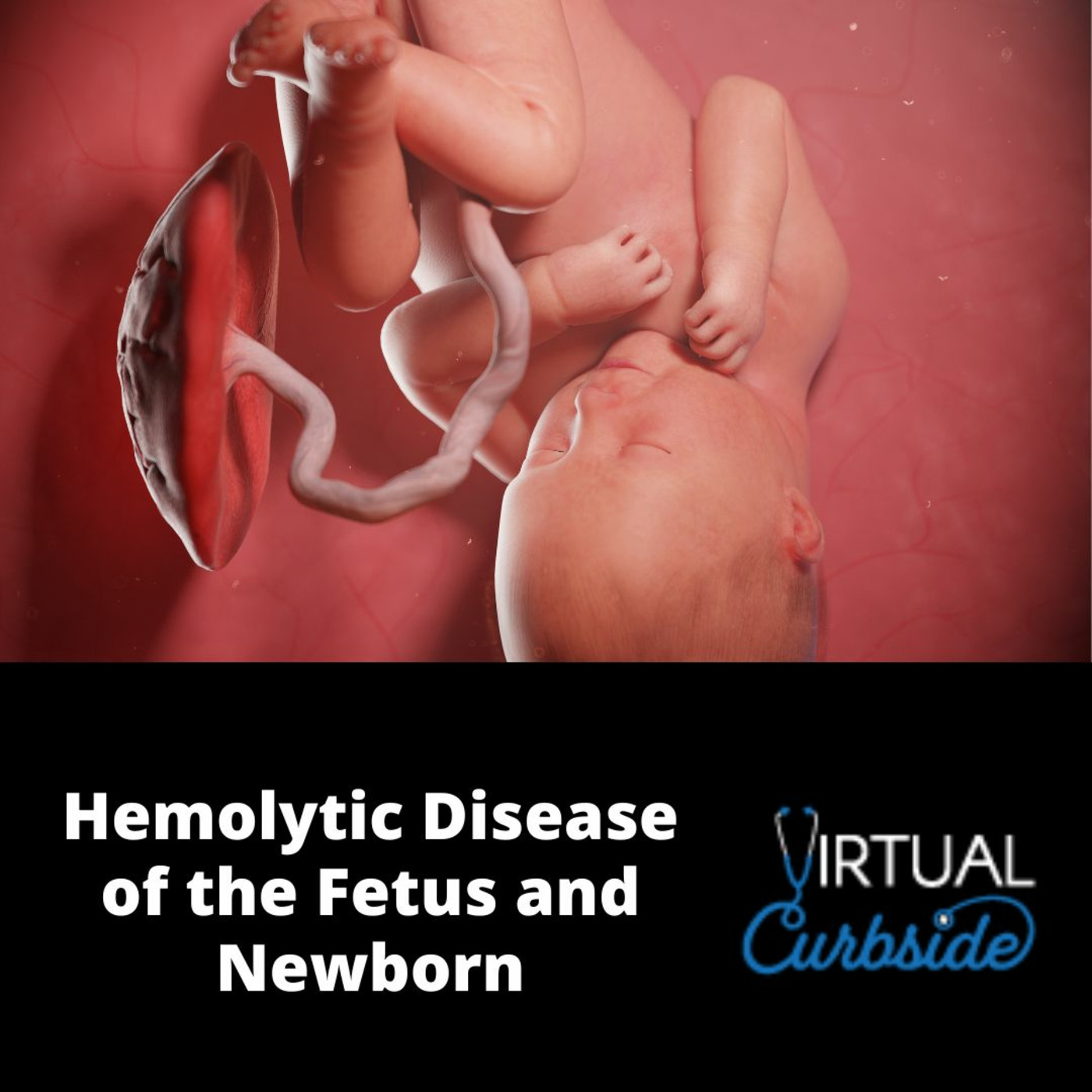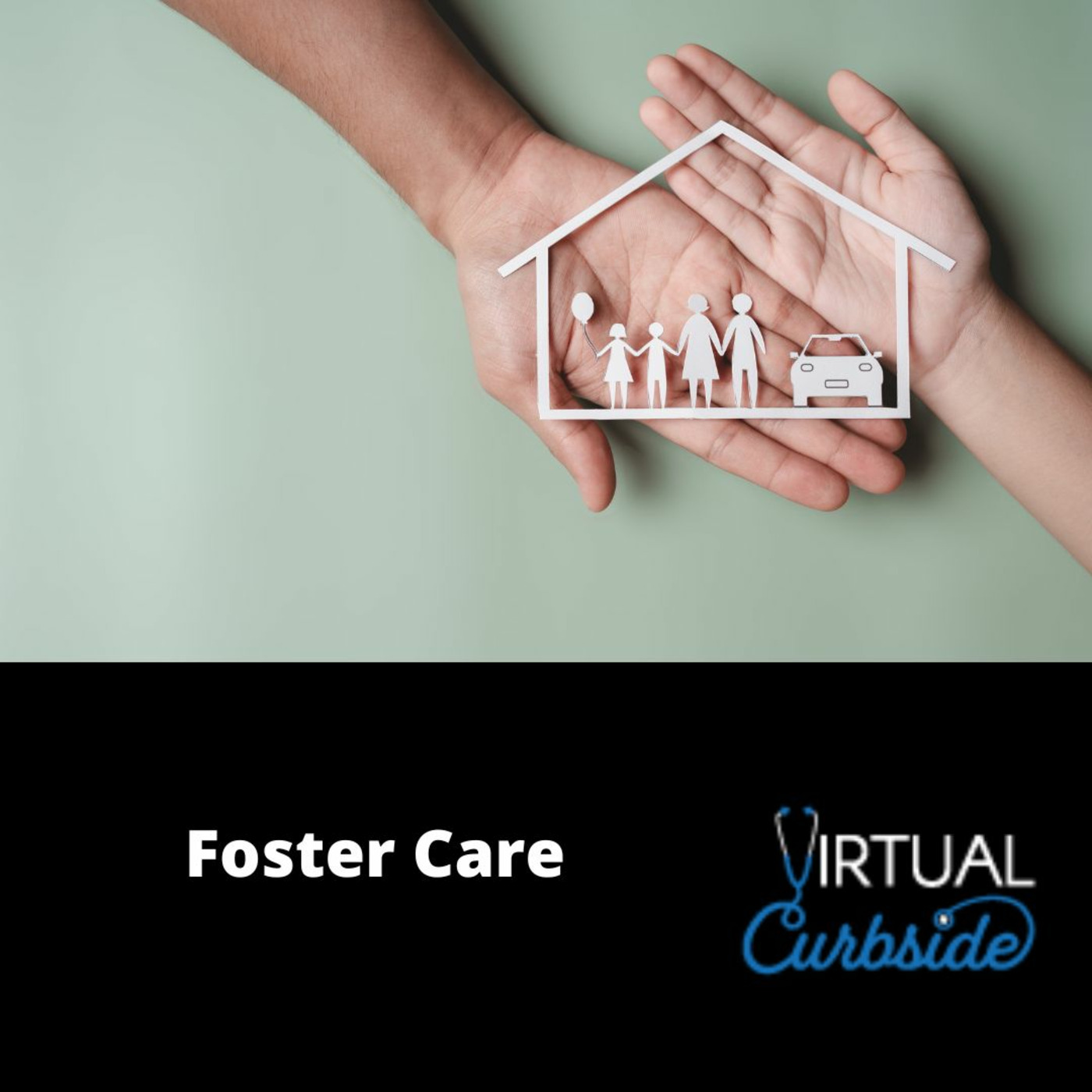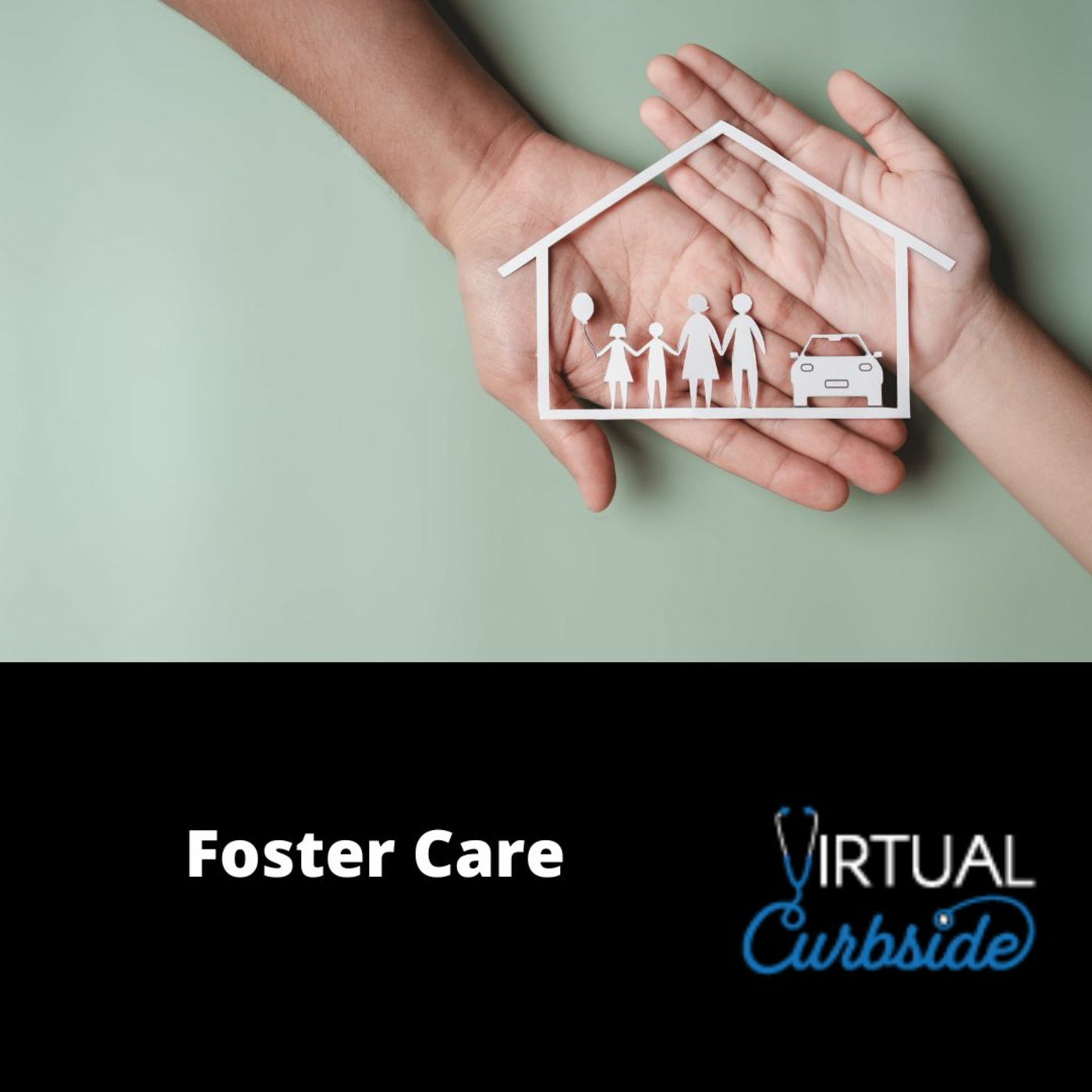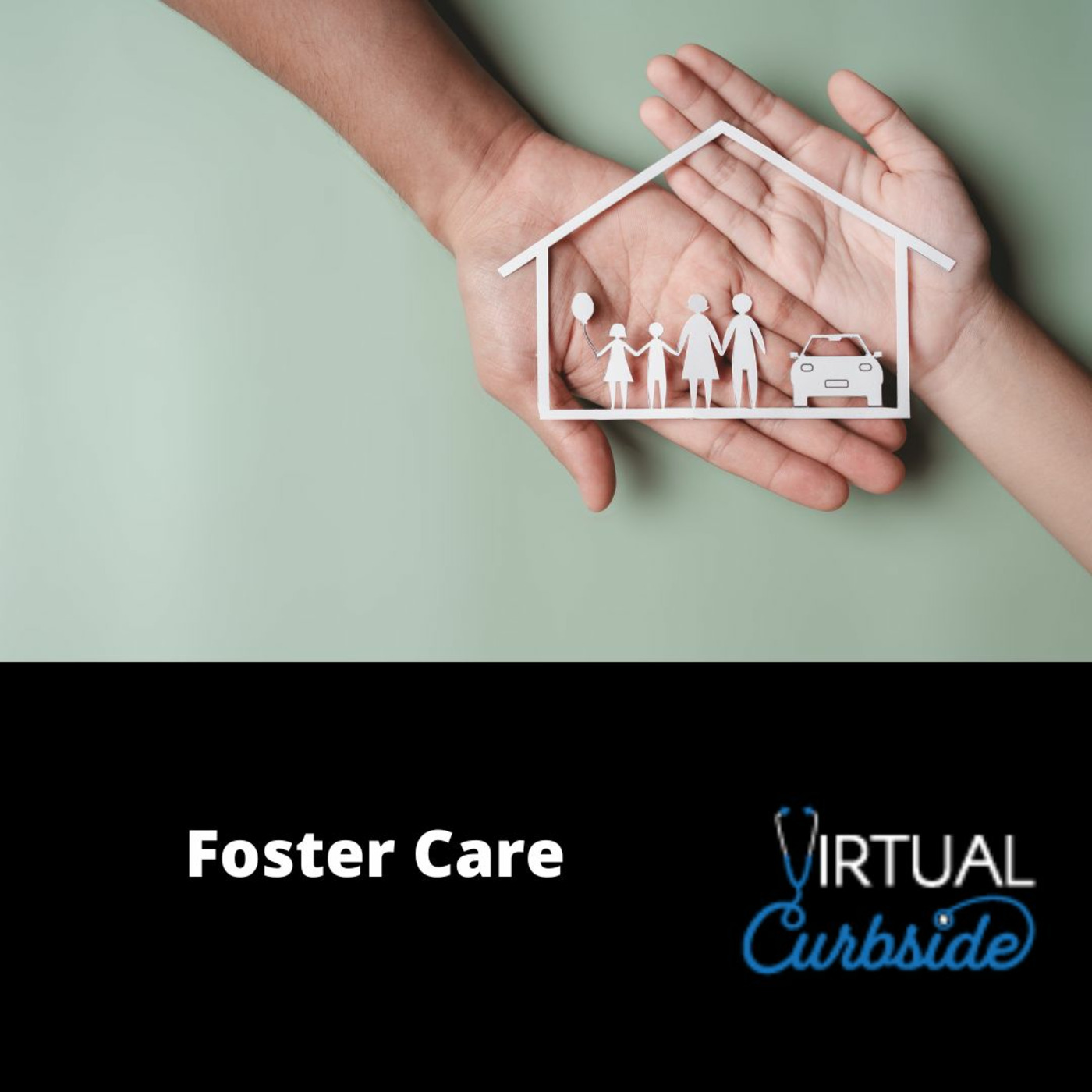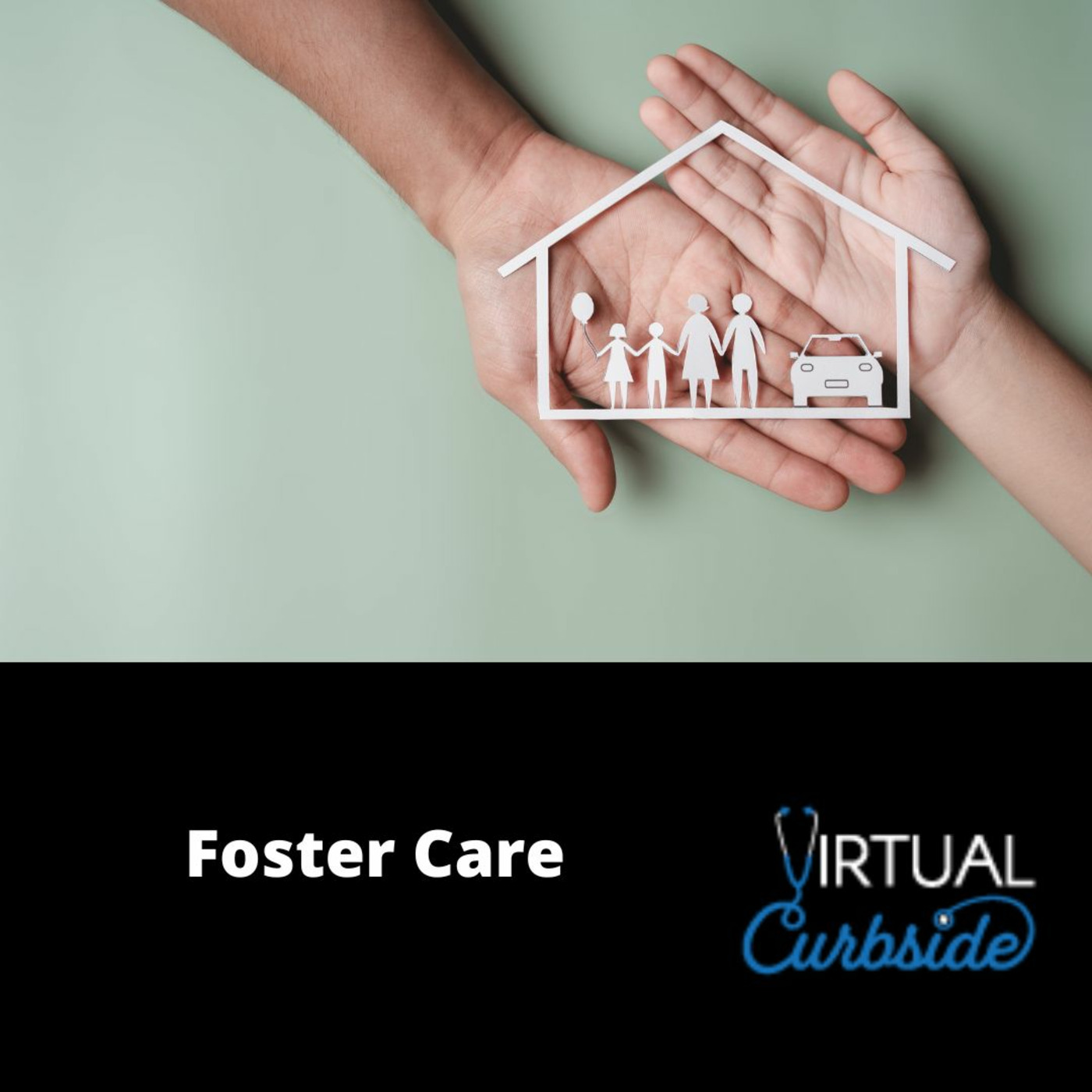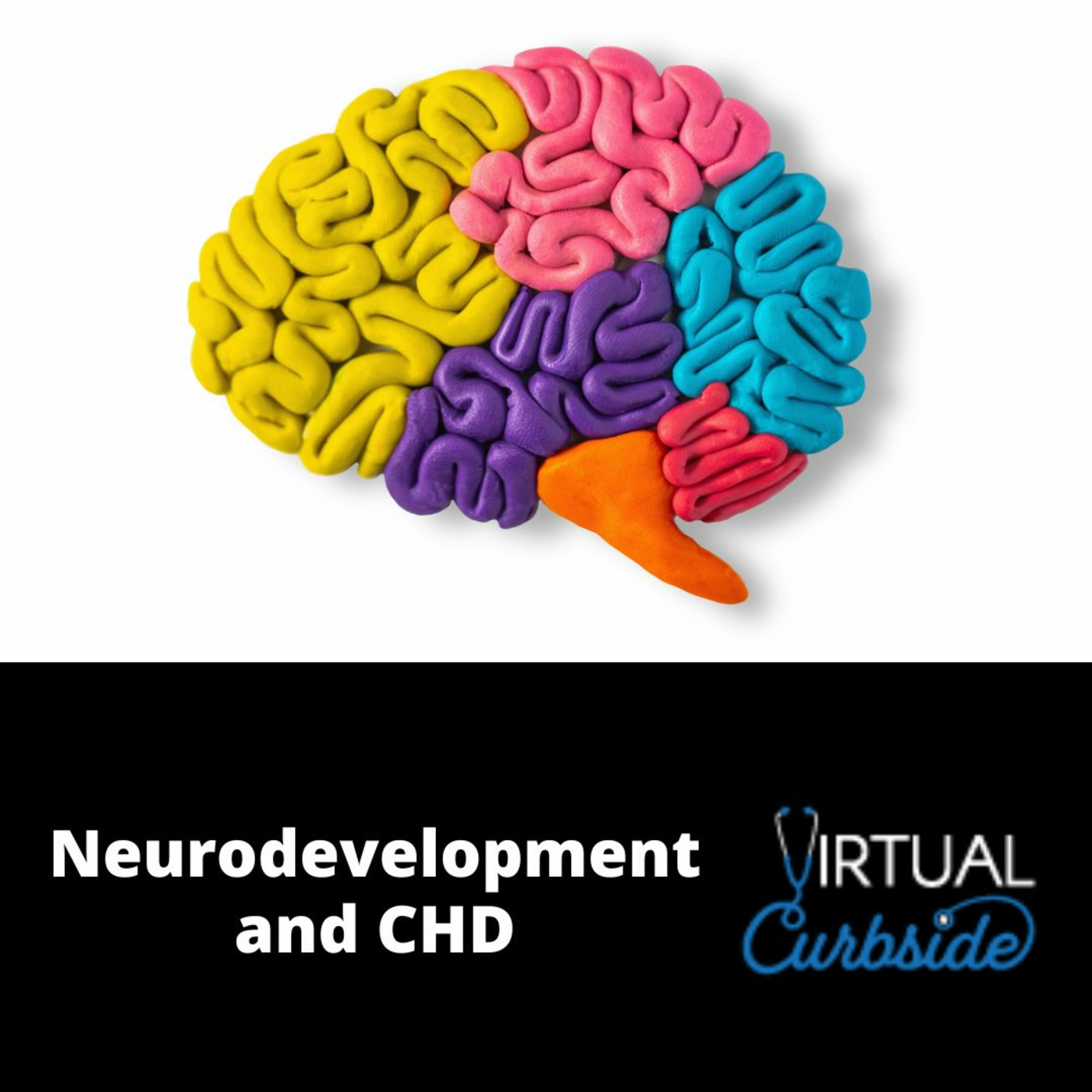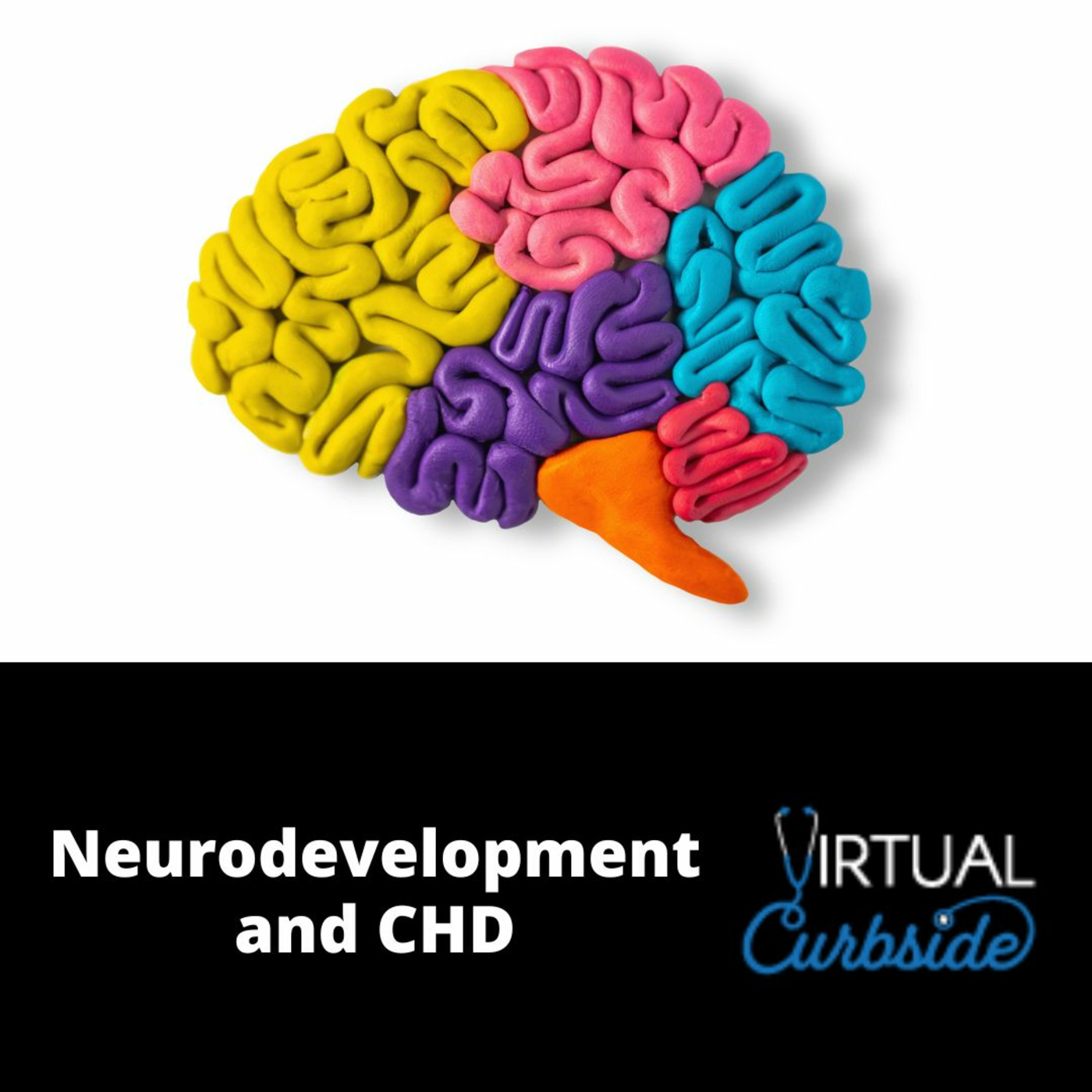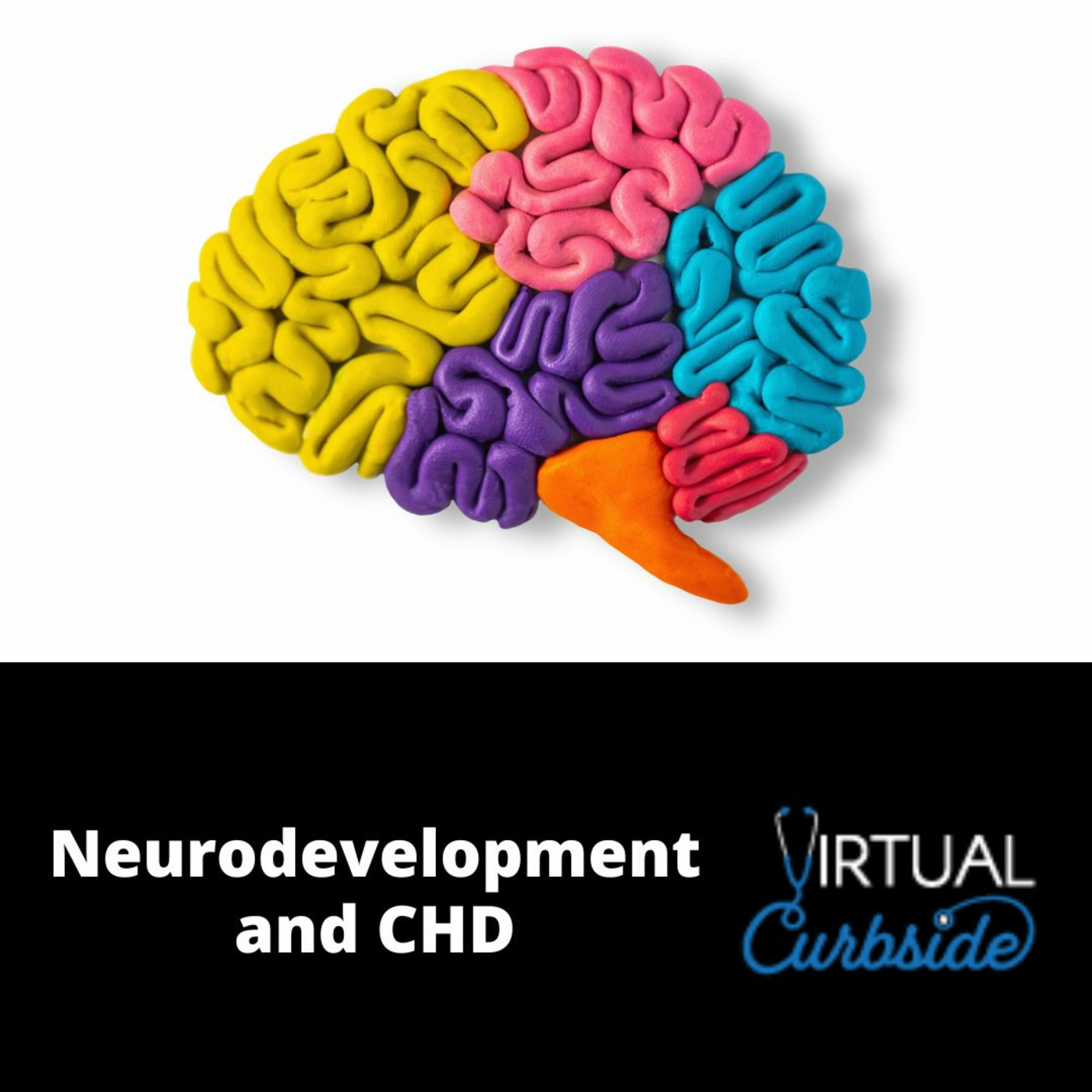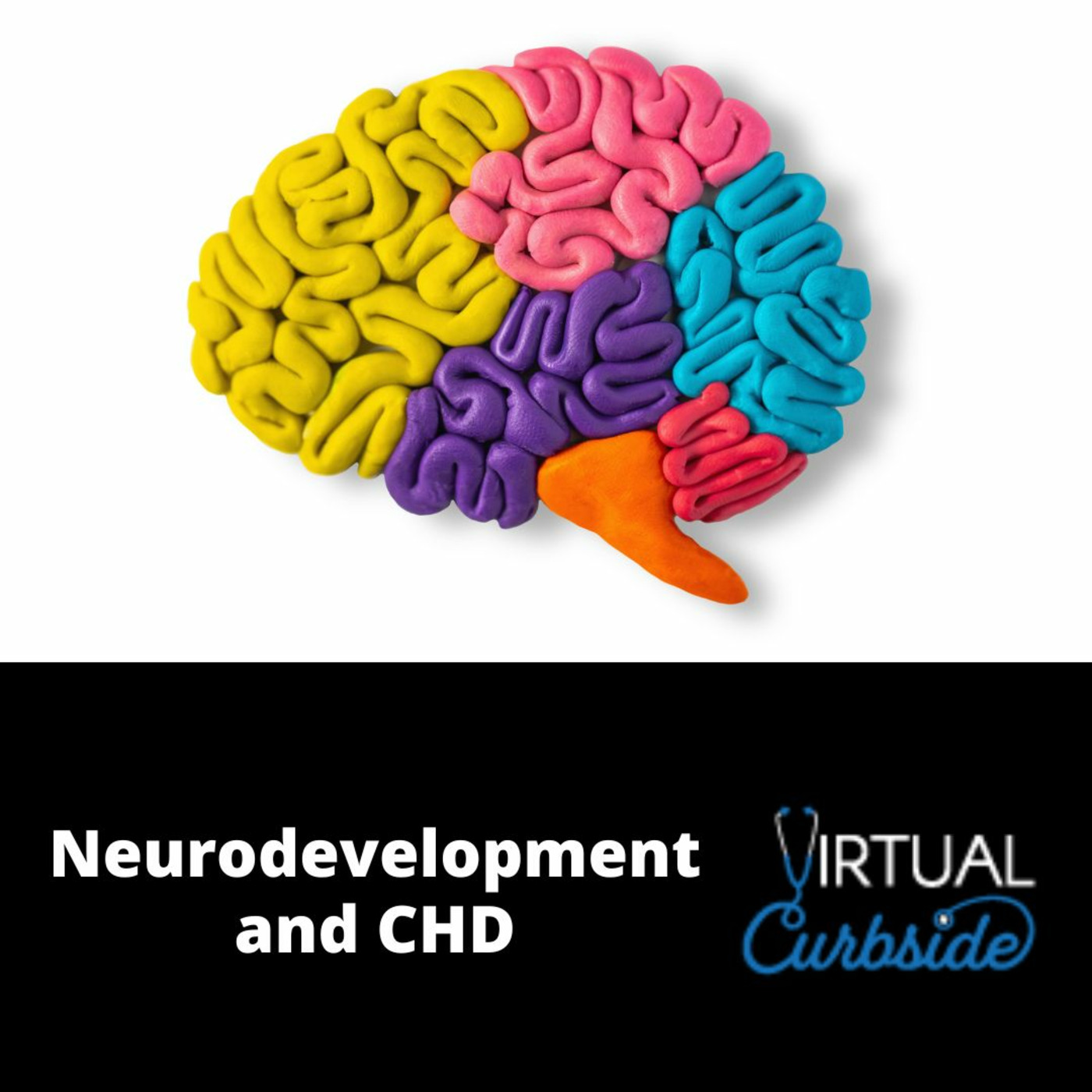Discover Virtual Curbside
Virtual Curbside

366 Episodes
Reverse
This month we begin a new series on common pediatric eye issues, starting with viral conjunctivitis. In this episode, host Paul Wirkus, MD, FAAP and Ophthalmologist Mitchell Strominger, MD review the clinical features that help distinguish viral conjunctivitis from other causes of red and pink eye, discuss typical disease course, and address common misconceptions around treatment and contagion. They also explore practical counseling points for families, including symptom management, infection control, and guidance on school and daycare attendance. This discussion is designed to help pediatricians confidently diagnose viral conjunctivitis and provide clear, evidence-based reassurance to families. Have a question? Email questions@vcurb.com. They will be answered in week four.For more information about available credit, visit vCurb.com.ACCME Accreditation StatementThis activity has been planned and implemented in accordance with the accreditation requirements and policies of the Colorado Medical Society through the joint providership of Kansas Chapter, American Academy of Pediatrics and Utah Chapter, AAP. Kansas Chapter, American Academy of Pediatrics is accredited by the Colorado Medical Society to provide continuing medical education for physicians. AMA Credit Designation StatementKansas Chapter, American Academy of Pediatrics designates this live activity for a maximum of 1.0 AMA PRA Category 1 Credits™. Physicians should claim only the credit commensurate with the extent of their participation in the activity.
In months with five weeks, The Virtual Curbside steps away from clinical topics for a pediatric book club discussion. This month, we explore The Self-Driven Child: The Science and Sense of Giving Your Kids More Control Over Their Lives by Ned Johnson and William Stixrud.Our hosts Paul Wirkus, MD, FAAP and Angelo Giardino, MD, FAAP, reflect on the science behind autonomy, stress, and motivation, and discuss how the book’s core themes intersect with pediatric care, parenting, and adolescent development. The conversation examines how well-intentioned adult control can sometimes undermine resilience, and how supporting a child’s sense of agency can improve mental health, learning, and long-term well-being. Listeners will gain practical insights into how pediatricians can reinforce these principles in conversations with families—and how clinicians themselves can think differently about success, pressure, and development in children and teens.No credit available for this episode. See vcurb.com for additional episodes.
In this Q&A episode, host Paul Wirkus, MD, FAAP and guest Tim Bahr, MD, FAAP address important clinical questions surrounding hyperbilirubinemia, with a focus on longer-term complications and complex presentations. The discussion explores outcomes associated with severe or prolonged hyperbilirubinemia, including cases with late presentation or persistent jaundice, and how these scenarios may differ from typical newborn courses. We also review key considerations for escalation of care, including when transfer to a higher level of care is warranted and how to make those decisions in real-world practice. This episode offers practical guidance to support timely recognition, appropriate management, and improved outcomes for infants at risk. For more information about available credit, visit vCurb.com.ACCME Accreditation StatementThis activity has been planned and implemented in accordance with the accreditation requirements and policies of the Colorado Medical Society through the joint providership of Kansas Chapter, American Academy of Pediatrics and Utah Chapter, AAP. Kansas Chapter, American Academy of Pediatrics is accredited by the Colorado Medical Society to provide continuing medical education for physicians. AMA Credit Designation StatementKansas Chapter, American Academy of Pediatrics designates this live activity for a maximum of 1.0 AMA PRA Category 1 Credits™. Physicians should claim only the credit commensurate with the extent of their participation in the activity.
In Episode 3 of our hemolytic disease of the fetus and newborn (HDFN) series, host Paul Wirkus, MD, FAAP and guest Tim Bahr, MD, FAAP focus on clinical management and emerging consensus around care. Our discussion reviews key elements of the recently published consensus paper, including proposed guidelines for evaluation, monitoring, and treatment across the perinatal and neonatal periods. They address management of hyperbilirubinemia and anemia, escalation of care when disease severity increases, and the critical role of early recognition.We also explore high-risk presentations, including hydrops fetalis, and discuss delivery room considerations and coordination with Neonatal Resuscitation Program (NRP) protocols. Emphasis is placed on interdisciplinary collaboration between obstetrics, neonatology, hematology, and pediatrics to ensure timely intervention and continuity of care for affected infants.Have a question? Email questions@vcurb.com. They will be answered next week.For more information about available credit, visit vCurb.com.ACCME Accreditation StatementThis activity has been planned and implemented in accordance with the accreditation requirements and policies of the Colorado Medical Society through the joint providership of Kansas Chapter, American Academy of Pediatrics and Utah Chapter, AAP. Kansas Chapter, American Academy of Pediatrics is accredited by the Colorado Medical Society to provide continuing medical education for physicians. AMA Credit Designation StatementKansas Chapter, American Academy of Pediatrics designates this live activity for a maximum of 1.0 AMA PRA Category 1 Credits™. Physicians should claim only the credit commensurate with the extent of their participation in the activity.
This week’s episode host Paul Wirkus, MD, FAAP and guest Tim Bahr, MD, FAAP take a deep dive into evaluating newborn jaundice and identifying early signs of hemolysis. We walk through the key elements of maternal testing that set the stage for newborn risk assessment, then explore how to interpret bilirubin trajectories to distinguish normal patterns from concerning trends. Our guests also review the role of the reticulocyte count, what a peripheral smear can reveal, and how these tools come together to guide clinical decision-making. The discussion closes with practical guidance on when pediatricians should involve hematology or neonatology to ensure timely, coordinated care for infants at risk of significant disease. Have a question? Email questions@vcurb.com. They will be answered in week four.For more information about available credit, visit vCurb.com.ACCME Accreditation StatementThis activity has been planned and implemented in accordance with the accreditation requirements and policies of the Colorado Medical Society through the joint providership of Kansas Chapter, American Academy of Pediatrics and Utah Chapter, AAP. Kansas Chapter, American Academy of Pediatrics is accredited by the Colorado Medical Society to provide continuing medical education for physicians. AMA Credit Designation StatementKansas Chapter, American Academy of Pediatrics designates this live activity for a maximum of 1.0 AMA PRA Category 1 Credits™. Physicians should claim only the credit commensurate with the extent of their participation in the activity.
This week’s episode focuses on alloimmunization the prevention of hemolytic disease of the fetus and newborn (HDFN). Our host Paul Wirkus, MD, FAAP and Tim Bahr, MD break down the immunologic mechanisms behind HDFN, discuss how maternal sensitization occurs, and explain why timely screening and prophylaxis are essential. We review current recommendations, practical considerations for pediatric and perinatal providers, and the role of coordinated care across obstetrics and pediatrics to reduce the risk of this preventable condition. Have a question? Email questions@vcurb.com. They will be answered in week four.For more information about available credit, visit vCurb.com.ACCME Accreditation StatementThis activity has been planned and implemented in accordance with the accreditation requirements and policies of the Colorado Medical Society through the joint providership of Kansas Chapter, American Academy of Pediatrics and Utah Chapter, AAP. Kansas Chapter, American Academy of Pediatrics is accredited by the Colorado Medical Society to provide continuing medical education for physicians. AMA Credit Designation StatementKansas Chapter, American Academy of Pediatrics designates this live activity for a maximum of 1.0 AMA PRA Category 1 Credits™. Physicians should claim only the credit commensurate with the extent of their participation in the activity.
In this Q&A episode, host Paul Wirkus, MD, FAAP and Shawn Mendenhall, MD address common clinical questions related to managing upper extremity spasticity in children. The conversation explores how to balance orthopedic readiness and bone maturity with developmental readiness and family goals - highlighting the importance of individualized timing and shared decision-making. They also discuss the collaborative relationship between general pediatricians and subspecialists, particularly when families live far from surgical centers and rely on their primary care provider to coordinate ongoing care. Listeners will gain practical insights into communication, expectation-setting, and supporting families throughout the treatment journey. Have a question? Email questions@vcurb.com.For more information about available credit, visit vCurb.com.ACCME Accreditation StatementThis activity has been planned and implemented in accordance with the accreditation requirements and policies of the Colorado Medical Society through the joint providership of Kansas Chapter, American Academy of Pediatrics and Utah Chapter, AAP. Kansas Chapter, American Academy of Pediatrics is accredited by the Colorado Medical Society to provide continuing medical education for physicians. AMA Credit Designation StatementKansas Chapter, American Academy of Pediatrics designates this live activity for a maximum of 1.0 AMA PRA Category 1 Credits™. Physicians should claim only the credit commensurate with the extent of their participation in the activity.
In the third episode of our upper extremity spasticity series, host Paul Wirkus, MD, FAAP and Shawn Mendenhall, MD focus on what success truly looks like - both in the short term and long term. Our guests discuss how to measure meaningful outcomes for children, from functional gains to improved comfort and participation in daily activities. We also look ahead to the future of spasticity care, exploring emerging approaches, evolving surgical techniques, and innovations that may improve assessment and treatment. Together, the conversation highlights the importance of individualized goals, interdisciplinary follow-through, and continuous reevaluation to ensure each child progresses toward their highest potential. Have a question? Email questions@vcurb.com. They will be answered next week.For more information about available credit, visit vCurb.com.ACCME Accreditation StatementThis activity has been planned and implemented in accordance with the accreditation requirements and policies of the Colorado Medical Society through the joint providership of Kansas Chapter, American Academy of Pediatrics and Utah Chapter, AAP. Kansas Chapter, American Academy of Pediatrics is accredited by the Colorado Medical Society to provide continuing medical education for physicians. AMA Credit Designation StatementKansas Chapter, American Academy of Pediatrics designates this live activity for a maximum of 1.0 AMA PRA Category 1 Credits™. Physicians should claim only the credit commensurate with the extent of their participation in the activity.
In this episode, host Paul Wirkus, MD, FAAP and Shawn Mendenhall, MD continue our discussion on upper extremity spasticity—focusing on individualized surgical planning. Our guests explore the range of surgical options available, emphasizing how treatment decisions should be tailored to each child’s functional goals, pattern of spasticity, and overall care plan. The conversation highlights the importance of interdisciplinary collaboration and setting realistic expectations to achieve meaningful improvements in movement and quality of life. Have a question? Email questions@vcurb.com. For more information about available credit, visit vCurb.com.ACCME Accreditation StatementThis activity has been planned and implemented in accordance with the accreditation requirements and policies of the Colorado Medical Society through the joint providership of Kansas Chapter, American Academy of Pediatrics and Utah Chapter, AAP. Kansas Chapter, American Academy of Pediatrics is accredited by the Colorado Medical Society to provide continuing medical education for physicians. AMA Credit Designation StatementKansas Chapter, American Academy of Pediatrics designates this live activity for a maximum of 1.0 AMA PRA Category 1 Credits™. Physicians should claim only the credit commensurate with the extent of their participation in the activity.
This week’s episode with host Paul Wirkus, MD, FAAP and Shawn Mendenhall, MD focuses on recognizing and correctly identifying upper extremity spasticity in pediatric patients. Our discussion covers key clinical features, surgical updates, common causes, and practical assessment techniques to distinguish spasticity. Understanding these nuances is essential for accurate diagnosis and timely intervention to improve function and quality of life. Have a question? Email questions@vcurb.com. For more information about available credit, visit vCurb.com.ACCME Accreditation StatementThis activity has been planned and implemented in accordance with the accreditation requirements and policies of the Colorado Medical Society through the joint providership of Kansas Chapter, American Academy of Pediatrics and Utah Chapter, AAP. Kansas Chapter, American Academy of Pediatrics is accredited by the Colorado Medical Society to provide continuing medical education for physicians. AMA Credit Designation StatementKansas Chapter, American Academy of Pediatrics designates this live activity for a maximum of 1.0 AMA PRA Category 1 Credits™. Physicians should claim only the credit commensurate with the extent of their participation in the activity.
In this week’s episode, host Paul Wirkus, MD, FAAP, is joined by Arianna Nunez and Faith Smart. In this episode, youth with lived experience in foster care share their perspectives on medical care - what worked, what didn’t, and what they wish healthcare providers understood. They reflect on the importance of being spoken to directly, knowing what to expect during exams, and feeling respected as active participants in their own care. Their insights offer valuable guidance for pediatricians seeking to provide trauma-informed, patient-centered care to children and adolescents in foster care. Book: Fostering Health: Health Care for Children and Adolescents in Foster CareWebsite: https://www.aap.org/en/patient-care/national-center-for-relational-health-and-trauma-informed-care/?srsltid=AfmBOoq4VarhOPz_mPemtMkydrWGDgwNj6JGH-RdqPp98oyzzccmnRAYDr. Mary Crane Fund for Lived Experience: https://aapnational.donorsupport.co/page/COFCAKC1999 CollectiveFirst Star AcademyHave a question? Email questions@vcurb.com. For more information about available credit, visit vCurb.com.Acknowledgment: Grant Funding provided by American Academy of Pediatrics Zero to Three Grant ACCME Accreditation StatementThis activity has been planned and implemented in accordance with the accreditation requirements and policies of the Colorado Medical Society through the joint providership of Kansas Chapter, American Academy of Pediatrics and Utah Chapter, AAP. Kansas Chapter, American Academy of Pediatrics is accredited by the Colorado Medical Society to provide continuing medical education for physicians. AMA Credit Designation StatementKansas Chapter, American Academy of Pediatrics designates this live activity for a maximum of 1.0 AMA PRA Category 1 Credits™. Physicians should claim only the credit commensurate with the extent of their participation in the activity.
In this week’s episode, host Paul Wirkus, MD, FAAP, is joined by Kristine Fortin, MD. They will focus on what it takes to optimize care for children and youth in foster care. Our guest discusses how pediatricians can apply trauma-informed practices to foster trust, enhance communication, and address the distinct healthcare needs of this population. The conversation also explores common barriers foster youth face in accessing consistent, coordinated care - and highlights resources available to support pediatricians in providing compassionate, comprehensive care. Book: Fostering Health: Health Care for Children and Adolescents in Foster CareWebsite: https://www.aap.org/en/patient-care/national-center-for-relational-health-and-trauma-informed-care/?srsltid=AfmBOoq4VarhOPz_mPemtMkydrWGDgwNj6JGH-RdqPp98oyzzccmnRAYDr. Mary Crane Fund for Lived Experience: https://aapnational.donorsupport.co/page/COFCAKCHave a question? Email questions@vcurb.com. For more information about available credit, visit vCurb.com.Acknowledgment: Grant Funding provided by American Academy of Pediatrics Zero to Three Grant ACCME Accreditation StatementThis activity has been planned and implemented in accordance with the accreditation requirements and policies of the Colorado Medical Society through the joint providership of Kansas Chapter, American Academy of Pediatrics and Utah Chapter, AAP. Kansas Chapter, American Academy of Pediatrics is accredited by the Colorado Medical Society to provide continuing medical education for physicians. AMA Credit Designation StatementKansas Chapter, American Academy of Pediatrics designates this live activity for a maximum of 1.0 AMA PRA Category 1 Credits™. Physicians should claim only the credit commensurate with the extent of their participation in the activity.
In this episode of The Virtual Curbside, host Paul Wirkus, MD, FAAP, is joined by Kristine Fortin, MD. Listen in to the discussion on what is best when providing care for children in foster care with unique challenges. This week, we discuss how often these children should be seen and how to tailor visits using a trauma-informed approach. We explore when it’s appropriate to involve children in their treatment planning, and when their age or developmental stage may limit participation. Many foster youth are meeting a new healthcare provider for the first time and may have limited understanding of their own health - making trust and thoughtful communication essential. Book: Fostering Health: Health Care for Children and Adolescents in Foster CareHave a question? Email questions@vcurb.com. For more information about available credit, visit vCurb.com.Acknowledgment: Grant Funding provided by American Academy of Pediatrics Zero to Three Grant ACCME Accreditation StatementThis activity has been planned and implemented in accordance with the accreditation requirements and policies of the Colorado Medical Society through the joint providership of Kansas Chapter, American Academy of Pediatrics and Utah Chapter, AAP. Kansas Chapter, American Academy of Pediatrics is accredited by the Colorado Medical Society to provide continuing medical education for physicians. AMA Credit Designation StatementKansas Chapter, American Academy of Pediatrics designates this live activity for a maximum of 1.0 AMA PRA Category 1 Credits™. Physicians should claim only the credit commensurate with the extent of their participation in the activity.
In this episode of The Virtual Curbside, host Paul Wirkus, MD, FAAP, is joined by Kyla Clark, Strengthening Families Program Administrator, provides an inside look at how the Division of Child and Family Services (DCFS) works to protect children and support families. She explains the different types of foster care placements, the circumstances under which children may be removed from their homes, and the efforts made to reunify families whenever possible. This conversation helps listeners understand the purpose of child welfare, the goals of DCFS, and how the system strives to balance child safety with family preservation. Have a question? Email questions@vcurb.com. For more information about available credit, visit vCurb.com.Acknowledgment: Grant Funding provided by American Academy of Pediatrics Zero to Three Grant ACCME Accreditation StatementThis activity has been planned and implemented in accordance with the accreditation requirements and policies of the Colorado Medical Society through the joint providership of Kansas Chapter, American Academy of Pediatrics and Utah Chapter, AAP. Kansas Chapter, American Academy of Pediatrics is accredited by the Colorado Medical Society to provide continuing medical education for physicians. AMA Credit Designation StatementKansas Chapter, American Academy of Pediatrics designates this live activity for a maximum of 1.0 AMA PRA Category 1 Credits™. Physicians should claim only the credit commensurate with the extent of their participation in the activity.
Bonus Episode: Book Club with Paul Wirkus, MD, FAAP and Angelo Giardino, MD, FAAP In months with five weeks, The Virtual Curbside pauses clinical discussions for something a little different - a pediatric book club. This month, host Paul Wirkus, MD, FAAP, sits down with Angelo Giardino, MD, FAAP, to explore Everything is Tuberculosis by John Green. Together, they reflect on the global impact of tuberculosis, its toll on developing nations, and the challenges and opportunities physicians face in responding to this enduring public health crisis. No credit available for this episode. See vcurb.com for additional episodes.
In the final episode of our congenital heart disease and neurodevelopment series, host Paul Wirkus, MD, FAAP, is joined by experts Kristi Glotzbach, MD, Sarah Winter, MD, and Laura Wood, PhD. Together, they answer listener questions and share practical resources to help providers support children with CHD and related developmental challenges. Have a question? Email questions@vcurb.com.For more information about available credit, visit vCurb.com.ACCME Accreditation StatementThis activity has been planned and implemented in accordance with the accreditation requirements and policies of the Colorado Medical Society through the joint providership of Kansas Chapter, American Academy of Pediatrics and Utah Chapter, AAP. Kansas Chapter, American Academy of Pediatrics is accredited by the Colorado Medical Society to provide continuing medical education for physicians. AMA Credit Designation StatementKansas Chapter, American Academy of Pediatrics designates this live activity for a maximum of 1.0 AMA PRA Category 1 Credits™. Physicians should claim only the credit commensurate with the extent of their participation in the activity.
In this episode of The Virtual Curbside, host Paul Wirkus, MD, FAAP, is joined by experts Sarah Winter, MD, and Laura Wood, PhD, who explore the connection between congenital heart disease (CHD) and neurodevelopmental challenges. The conversation highlights the outpatient resources available to help children thrive - speech, developmental, occupational, and physical therapies - as well as the role of schools and IEPs in supporting growth and learning.Listeners will also hear about the importance of early intervention programs, available in every state, and how families can be supported through the emotional and developmental challenges that often follow a traumatic birth or early months in the NICU.Have a question? Email questions@vcurb.com. Your questions will be answered in week four.For more information about available credit, visit vCurb.com.ACCME Accreditation StatementThis activity has been planned and implemented in accordance with the accreditation requirements and policies of the Colorado Medical Society through the joint providership of Kansas Chapter, American Academy of Pediatrics and Utah Chapter, AAP. Kansas Chapter, American Academy of Pediatrics is accredited by the Colorado Medical Society to provide continuing medical education for physicians. AMA Credit Designation StatementKansas Chapter, American Academy of Pediatrics designates this live activity for a maximum of 1.0 AMA PRA Category 1 Credits™. Physicians should claim only the credit commensurate with the extent of their participation in the activity.
This week on The Virtual Curbside, host Paul Wirkus, MD, FAAP, is joined by experts Sarah Winter, MD, and Jori Harris, MS, to discuss the neurodevelopmental challenges frequently seen in children with congenital heart disease (CHD). Together, they outline the common phenotypes associated with CHD, why these patterns matter for long-term outcomes, and how pediatricians can recognize and address concerns early. The conversation also highlights practical approaches for supporting families and connecting children with the right interventions and resources at the right time. Have a question? Email questions@vcurb.com. Your questions will be answered in week four.For more information about available credit, visit vCurb.com.ACCME Accreditation StatementThis activity has been planned and implemented in accordance with the accreditation requirements and policies of the Colorado Medical Society through the joint providership of Kansas Chapter, American Academy of Pediatrics and Utah Chapter, AAP. Kansas Chapter, American Academy of Pediatrics is accredited by the Colorado Medical Society to provide continuing medical education for physicians. AMA Credit Designation StatementKansas Chapter, American Academy of Pediatrics designates this live activity for a maximum of 1.0 AMA PRA Category 1 Credits™. Physicians should claim only the credit commensurate with the extent of their participation in the activity.
In this week's episode, host Paul Wirkus, MD, FAAP, and guests Kristi Glotzbach, MD, and Laura Wood, PhD discuss recommendations for recognizing and addressing neurodevelopmental risks in infants and children with congenital heart disease (CHD). Listen in as they review strategies for risk identification, protection, screening, and evaluation, and focus on how clinicians can stratify risk for neurodevelopmental challenges in this vulnerable population. Have a question? Email questions@vcurb.com. Your questions will be answered in week four.For more information about available credit, visit vCurb.com.ACCME Accreditation StatementThis activity has been planned and implemented in accordance with the accreditation requirements and policies of the Colorado Medical Society through the joint providership of Kansas Chapter, American Academy of Pediatrics and Utah Chapter, AAP. Kansas Chapter, American Academy of Pediatrics is accredited by the Colorado Medical Society to provide continuing medical education for physicians. AMA Credit Designation StatementKansas Chapter, American Academy of Pediatrics designates this live activity for a maximum of 1.0 AMA PRA Category 1 Credits™. Physicians should claim only the credit commensurate with the extent of their participation in the activity.
This week, host Paul Wirkus, MD, FAAP is joined by Albert Park, MD, and Adrienne Johnson, AuD, to answer listener questions, including how the language pediatric providers use can shape families’ understanding and follow-through with additional testing, as well as how advances in technology are transforming implants and hearing aids. Have a question? Email questions@vcurb.com. For more information about available credit, visit vCurb.com.ACCME Accreditation StatementThis activity has been planned and implemented in accordance with the accreditation requirements and policies of the Colorado Medical Society through the joint providership of Kansas Chapter, American Academy of Pediatrics and Utah Chapter, AAP. Kansas Chapter, American Academy of Pediatrics is accredited by the Colorado Medical Society to provide continuing medical education for physicians. AMA Credit Designation StatementKansas Chapter, American Academy of Pediatrics designates this live activity for a maximum of 1.0 AMA PRA Category 1 Credits™. Physicians should claim only the credit commensurate with the extent of their participation in the activity.




